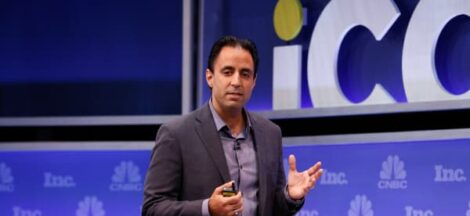The advertising club started an online debate series from 20th June. The first debate was titled, “Brand Purpose – Responsible or Opportunistic” which featured Agnello Dias moderating a debate between Josy Paul and Santosh Desai. While the debate itself was interesting, it gave an interesting glimpse into how the creative heads think about the creative process and brand purpose.
You can watch the full debate here:
I had written about Brand Purpose at least twice ((Re)purpose your brand, Planning to jump on the cause bandwagon) and my thoughts from that arise out of this debate are penned at the end of this post. But first, the pointers to what I thought were interesting observations / insights from the debate.
Agnello:
There are 2 motherhood insights given by him before he starts his moderation which are gold by themselves.
- The silent no, a uniquely Indian trait, is when we still say yes. The no in the Indian cultural context is always hidden, discrete, not brandished, felt not spoken, internalized, never spelled out.
- All things are born out of conflict – our society thrives on the plurality of opinion, diversity of viewpoint and gives us cerebral adrenaline and keeps us going.
- What you see as brand purpose today is just brand placement around something.
- At today’s award shows, every ad is about a public service message with similar result metrics – so many likes, so many hits, so much free PR.
- Brand purpose at its worst is manipulating what people perceive as a genuine social cause in order to increase sales of a product. It is the lowest form of selling because you are not being open about the reason.
- Earlier communication was supposed to present and highlight the product in an engage way. Now communication is supposed to create a product (create a new amorphous abstract product).
- How has the creative process changed?
- Earlier the communication was centered around the product – knowing thoroughly how something was made, worked etc., But today, the creative process, after getting a brief, starts from scanning the news to see what’s the most glamorous, the most unique, the most unusual cause one can latch the brand onto. The race today is to find a new cause.
- Latching onto a new cause is the easy way out for the planners and creatives to craft an ad.
- What is happening because of this new fad?
- There is pressure in the creative ecosystem system to create a purpose for a brand, even be it for a campaign, as every (competing) brand seems to have a purpose.
- Because of a notion that every brand should have a purpose, agencies are making new brands spend serious money building awareness about a cause, but not around their products.
- Only the ads that get awards get played out as representative of the ad industry. No one takes a normal hard-working ad and says this is representative of the industry! The foreign audience who’s not used to the intricacies and the nuances that make up India, seem to fall for this trope with almost 99% of ads that are spotlighted or win are this kind of purpose work.
Josy:
- Brand purpose personalises the brand – it tells others where you are coming from as an individual. It is the brands Unique Point of View (UPV)!
- Within every product or service there is an inherent human cause or purpose and it is a moral and creative duty to find it and this.
- Why does brand purpose work?
- It gets people buy into something bigger. The products and services then sell themselves so around it!
- A brand standing for something makes it instantly recognizable. It raise the bar for the brand and is the new source of revitalising communication.
- It makes people inspire for something versus desire for something!
- Why can brand purpose do?
- It can act as the central point for bringing together messaging on today’s fragmented media.
- It brings in a rallying point for people to come together and partner around. More importantly, it affects internal culture and makes people feel good about what they do (including ad partners)!
- Why is this band wagon of purpose happening everywhere?
- Probably it is a generational need to find a meaning. At the agency it is almost like a reaction to the work of the past.
He gives anecdotal examples of what he considers good purposes in ads. They are worth a look: Nike, Essar (open your mind), Cadbury (legimising your inner child), Bajaj (Indian nationalism we are proud of), David (discover the challenge – authority, dogma, discrimination, status quo – in each of us), Alpenlibe (keep at living with all that fun), Dove (redefine beauty), Surf (dirt is good), Pepsi (change the game with India’s unique youthful spirit), Whisper (question taboos) and Ariel (share the load).
Santosh:
- Either you have a purpose or you don’t. You can’t make a purpose, you begin with purpose. Many brands discovered a purpose late which is not genuine.
- Advertising was always manipulative and opportunistic. Earlier, brands planted emotional discord in order to get consumers to swing towards a brand. Today purpose is another other form of manipulation. Earlier it was an occasional foray into emotions, now there is an absolute claim with purpose.
- Many brands have simply jumped onto the purpose bandwagon without establishing their credibility first. It is a process that takes time to build, the way in which it is being practiced creates problems.
- Brand purpose and culture of an organisation are completely intertwined – people you hire, the employees worldview, everything has to be on the same lines. A purpose is real only when it comes from the organisation, its world view, its behaviour and its repertoire of actions. Agency just e partners, as advertising plays a tiny part.
- Why are brands suddenly talking purpose?
- There is a belief that…
- there is a new generation of consumers that values this and are asking questions around this.
- this is a “reason why” for the consumers to look at them and consider them!
- this is one way to be relevant in the changing consumer space of today.
- There is a belief that…
- What are the problems with brand purpose as we see around today?
- For a lot many, brand purpose is a dishonest exaggeration, a posture, an opportunistic move, a token activity that they engage in. Then, it is blown up as being the central purpose of its existence.
- Many brands are asserting that the primary reason for their existence is to do better for humanity, to do better for the world. They profess absolutely lofty goal with great scale and ambition. But in reality these are small individual goals and/or one off events. There is no humility and that is the problem.
- How can see through this facade of brand purpose?
- Did something contrary (stereotyped, exploited self esteem and vulnerability) either themselves earlier or their parent company is doing something opposite on another brand.
- Actions elsewhere don’t follow the purpose rhetoric. They are not related to this purpose, and in many cases is contrary to the purpose.
- Claim that they are making more profit or growing faster on brands with purpose.
- When you see a “display” of doing something good.
- Why is it difficult to have a good brand purpose?
- There is a structural problem, because the ecosystem in which these brands are embedded in (many times financial) places value somewhere else and doesn’t value what the brand say many times.
- What should a brand claiming purpose watch out for?
- In “today’s world”, with a brand purpose, you are asking to be evaluated and are up for scrutiny. When you ask people to look at you, buy you, because purpose is a “reason why”, there can be a huge risk of backlash if you don’t followup as you are constantly being evaluated.
My thoughts from this debate:
- One needs to be absolutely clear on what a ‘brand purpose’ is. In this debate is has been variously alluded to as stemming from / being the insight (almost all examples Josy Paul gave), the benefit (Agnello Dias hints to this in a couple of questions), the reason why (almost the entire argument of Santosh Desai) and even vision/mission statements (Santosh Desai’s example of J&J whose purpose he put as “changing the trajectory of health for all humanity”). For me it is, “a reason for a brand to exist beyond making profit”. So you can still make tons of profit and unashamedly follow all means to make it, while still standing for something uplifting.
- The second interesting point that both the debaters seem to agree on, is that a purpose starts from the time a brand is born. I do not think so, like all humans, the brand is a living person, and it might develop a philosophy or purpose as it grows. And like all humans, a brand can course correct and develop a point of view contrary to what it used to communicate a few years ago. But, once a point of view is developed the ‘consistency’ of messaging is what tells how true to the purpose the brand is.
- A good brand purpose plays within the TG – category – brand construct. The traditional marketing and/or advertising construct of thoroughly knowing your target consumer, your product (how it is made, how is works, how is it superior) and the category is very much still the foundation for building a good brand purpose.
- One can tell if a brand has a real purpose bu looking at its conviction and consistency. If one notices a brand talking two different, unrelated themes between two consecutive campaigns, it is almost always a brand trying to latch onto the next big news it thinks is going to garner it some attention. It also matters if the “purpose” is not unifying the communication in today’s fragmented media scenario. You can’t talk about real beauty in one ad and pick a actor/model with some flaws but still looking glamorous overall in another (think any of the Dove ads)!
- The one thing I agree with Santosh is, in a house of brands kind of scenario, it is hypocrisy if one brand is talking a purpose different to what another brand is talking (think Hindustan Unilever and Dove and Fair and Lovely).



